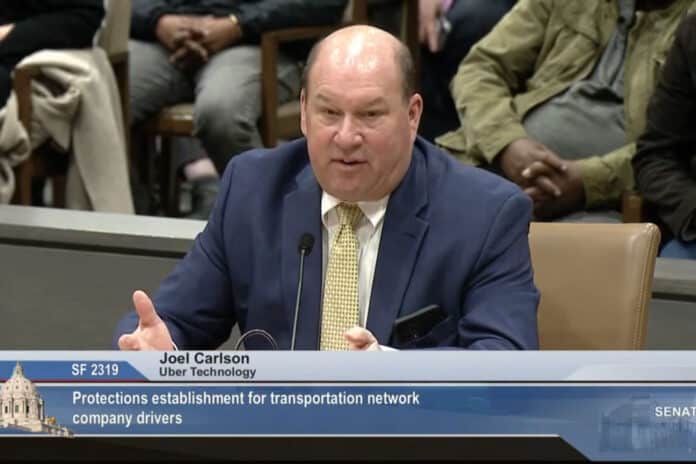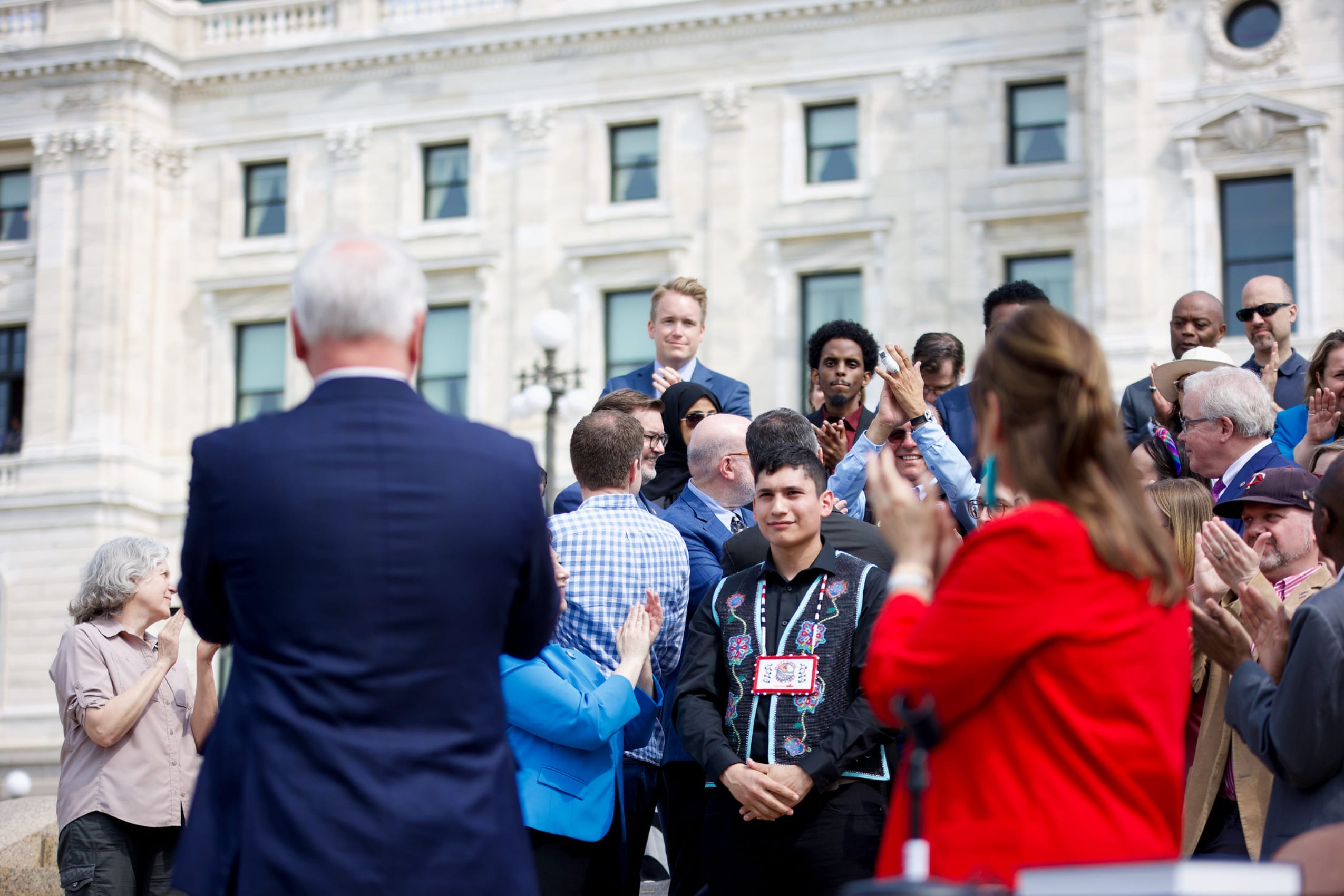
Not long after the state House and Senate passed the “Uber” bill in the final days of the legislative session, Gov. Tim Walz told media — when asked — that he wasn’t yet sure whether he would sign it. Maybe that was a “tell,” as they call it in poker.
On Thursday afternoon, Walz issued his first veto as governor and returned the bill to the legislature, writing that while “rideshare drivers deserve fair wages and safe working conditions,” he was committed to finding solutions to balance the interests of both drivers and the rideshare companies.
That didn’t sit well with DFL legislators who carried the rideshare wages bill, HF2369, in the House and Senate.
“Today, we saw the power corporations hold on our government despite the trifecta,” Sen. Omar Fateh, DFL-Minneapolis, who was the lead sponsor in the Senate, wrote Thursday evening in a Twitter post.
“While Uber and Lyft had access to the administration and elected officials, I want to make it clear that not once has the administration reached out to the drivers,” Fateh continued. “Not one conversation. It is clear that the misinformation spread by [transportation network companies] stuck without an opportunity for rebuttal. The fight is not over, and I promise you I won’t back down. This will be my top priority going into next session. I need you all more than ever.”
Rep. Hodan Hassan, DFL-Minneapolis, who carried the legislation in the House, also took to Twitter and said she was “extremely disappointed that [Walz] uses his first veto power on a bill that supports drivers and protects workers; workers who are overwhelmingly people of color.”
Uber says it will ‘operate as normal’ in Minnesota
On Friday, following Walz’s veto, San Francisco-based uber — which employs more than 5 million drivers worldwide — announced that it would “operate as normal throughout Minnesota.”
The governor vetoed a bill “that would have doubled the cost of a ride, put thousands of drivers out of work and made rideshare less safe,” Uber said in a statement to media. “Instead the governor issued an executive order to create a committee to work on a compromise for next year … We look forward to the opportunity to work with drivers, legislators and others to get this right and hope the legislature quickly passes a permanent solution in February.”
‘Rideshare deserts’ across the Twin Cities?
The bill first passed the House in a 69-61 party-line vote on May 18. The Senate then voted 35-32 to approve the legislation in the final hours of session on Monday evening. All 34 DFL senators voted for the bill and were joined by Sen. Jim Abeler, R-Anoka.
Republicans said they believe the majority of Uber and Lyft drivers in Minnesota oppose the legislation and that the more than one-fourth of Minnesotans who use rideshare apps would be unable to afford price increases imposed to offset the wage increases required in the bill language, resulting in “rideshare deserts” across the Twin Cities and surrounding areas.
“In my previous life I was an appraiser, and I was an independent contractor,” said Sen. John Jasinski, R-Faribault. “If I didn’t like the rate or didn’t like the fees I was getting, I didn’t accept them and I took another job.”

The bill would have mandated minimum compensation rates for drivers on a per-mile and per-minute basis. It would also have granted a driver the right to appeal a deactivation, providing an avenue to possibly reactivate their account on a rideshare app.
Republicans criticized that provision, echoing concerns from rideshare companies like Uber and Lyft who deactivate drivers from the service who they deem are a risk to riders.
In response to those concerns, the House adopted a handful of amendments that would require rideshare companies to permanently ban drivers from their apps who have been convicted of serious crimes.
Walz: ‘This is not the right bill’
While the DFL remained in solidarity in both chambers over the legislation that would ensure rideshare drivers have better pay and procedural protections from being “deactivated” by the companies they drive for, Walz said he wants to see more stakeholders from both sides study the issue.
“This is not the right bill to achieve that goal,” Walz wrote in his veto message. In that same press statement, Walz announced he had signed an executive order to create a committee for further study of how to balance competing interests between the rideshare driver community and the companies, such as Uber and Lyft.
Walz’s veto came after Uber threatened to stop operating outside the Twin Cities area later this summer if the governor signed the bill into law. The bill had been working its way through the legislature since March, but Uber and other transportation network companies had become aware of the possibility it would be introduced as early as last fall, according to company representatives who testified before the Senate Labor Committee in March.
One of the bill’s co-sponsors in the Senate, Jen McEwen, DFL-Duluth, also criticized Walz’s veto in a pair of tweets.
During a committee hearing on the bill in March, McEwen expressed her support for the Uber drivers who testified in support of the bill.
“This is a recurring theme we have seen over this session in our Senate Labor Committee, that is, in different sectors of our economy many workers are feeling their humanity is not being honored and they are being treated in sort of a commodified way,” McEwen said. “I made a note of this deactivation language feeling very dehumanizing, to me … To me it sounds very much like treating people like machines. You don’t deactivate people.”
Hank Long
Hank Long is a journalism and communications professional whose writing career includes coverage of the Minnesota legislature, city and county governments and the commercial real estate industry. Hank received his undergraduate degree at the University of Minnesota, where he studied journalism, and his law degree at the University of St. Thomas. The Minnesota native lives in the Twin Cities with his wife and four children. His dream is to be around when the Vikings win the Super Bowl.









